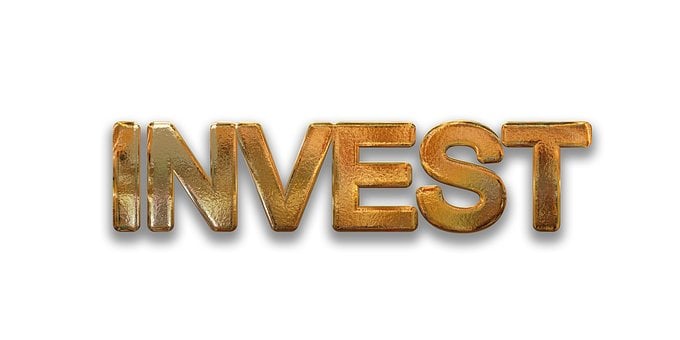Build Wealth with Dave Ramsey’s “Baby Steps”
May 14, 2021
Dave Ramsey is a personal finance expert, and he has been advising people for decades on his famous podcast, “The Ramsey Show.” He also runs a massive personal finance business aimed to help out all Americans, called “Ramsey Solutions.” After coaching people for decades, he developed a fool-proof plan to build wealth and success. But of course you can’t just wake up and become a millionaire tomorrow– you need to compartmentalize each step in order to become wealthy. He calls these “the baby steps.” Since becoming wealthy is a daunting task for most of us, he created 7 small steps into getting there. Becoming successful in your finances is like eating an elephant: you get there by eating the elephant one bite at a time.
Dave Ramsey’s Baby Steps
Step 1 – Save $1,000
Step 2 – Pay off all debt
Step 3 – Save 3-6 months of expenses
Step 4 – Invest 15% of income into retirement
Step 5 – Save for children’s college
Step 6 – Pay off your mortgage early
Step 7 – Build wealth and give generously.
Step 1 – Save 1,000$ – This seems like a pretty easy task right? Well it turns out that about 60% of Americans could not pay for an unexpected $1,000 expense out of pocket. They would need to borrow the money and go into debt because of it. So if you can put $1,000 aside for emergencies, you are already better off than 60% of Americans. This $1,000 will be the start of your emergency fund, and you will aim to finish it when you get to baby step 3. Right now $1,000 shouldn’t feel like a lot, but it will protect you from some of the things that life might throw at you like a popped tire, or an oil and filter change, or an emergency trip to the vet that you might need to pay out of pocket. Whatever it may be, $1,000 will be a buffer to some small emergencies.










Step 2 – Pay Off All Non-Mortgage Debt – Our American culture is not great when it comes to debt. The average family has $6,270 of credit card debt. The average student who takes out a loan graduates with $32,731 in debt. If you can eliminate debt from your life completely, you will be miles ahead of the average American when it comes to personal finance. When you have debt, you have interest payments most of the time. That is money that you could be spending or saving elsewhere. If you have $29,000 in credit card debt with an 18% interest rate, you’re losing $5,220 every year. Can you afford to throw away a crisp $100 bill every single week? Probably not.
You should pay off all of your debt so you can save money on interest, and also get control of your income. Dave Ramsey has an interesting philosophy when it comes to paying off debt. He says you should list your debts smallest to largest, according to balance, and pay minimums on all of them except for the smallest one. Pay every extra dollar you have on the smallest ones, and pay it off. Then move on to the next smallest one, and then the next, and then the next, until you’re all done. He calls this “the debt snowball” Although it might be more mathematically advantageous to pay off the debts with the highest interest rates first, it’s better to knock off some small debts first to get motivated to eventually go after those debts with intimidating balances. He compares the journey of paying off debt to losing weight. To lose weight you should never drink alcohol or soda. You should only eat clean foods 100% of the time. That’s scientifically the best way to lose weight. But you have to factor in people’s psychology. If they’re on a diet, and they get to cheat a little, it’ll be easier to achieve their ultimate goals. When you are on a weight loss journey, if you see the pounds on the scale go down a few pounds each week, you will be motivated to keep going. The same can be said to paying off debt.

Step 3 – Save 3-6 Months Expenses
Now that you’ve paid off all of your debts besides your mortgage, Dave suggests that you never go backwards. That means never use a credit card again, never take out a loan on a car, no personal loans, etc. This might sound impossible, but if you have cash to pay for it, it might not be as far-fetched as it sounds. So in this step, you will continue add to your emergency fund. Your emergency fund was started in baby step 1 with the $1,000. But now you will calculate how much money it takes for you to live for 1 month. Let’s say it is $3,000. Now, multiply that number by 3 and 6. That is 3-6 months worth of expenses for you. $9,000-$18,000 is what you need to save for your emergency fund. This is your fund that you have in cash. You should put this in an account that is highly liquid. Meaning, it is easy to access with no penalties or time constraints, perhaps a high yield saving account.
This money is meant for emergencies; like, if your car completely breaks and you need a new one. No problem; take a few thousand out and buy a new one. Or, if your roof needs to be replaced, you have the money. If you get let go from your job and it takes you 3 months to find a new source of income, your emergency fund will supplement you for the time being. Every time an emergency happens, you make sure to continue to save more money to replenish what you were forced to withdraw. The difference between choosing if you want to go on the cautious side with 6 months of expenses or a little more risky with only 3 months, depends on two main things. How secure is your job? Do you work as a real estate agent off commission which is irregular? Or do you have a relatively safe government teaching job with tenure? The safer the job, the smaller the emergency fund needs to be. Also, if you are comfortable with only 3 months of expenses, then that’s okay. If you want a little more, you set your goal for the 6 month mark.

Step 4 – Invest 15% To Retirement
Now that you have no debt and a large emergency fund, now is the time to start getting serious about saving for your retirement. The sooner you start, the larger your nest egg is going to be when you retire. And if you are 35 and want to have a similar sized nest egg as someone who starts saving for retirement at 20, you will have to contribute significantly more. So where do you start saving, and how much? Dave Ramsey suggests that you start with your employer match. An employer match is when you contribute, let’s say, 3% of your salary from your own check, and then your employer matches the same amount. For instance, if you make a 50k gross salary, you should contribute $7,500 to retirement. You should contribute 6% of your income to your 401k, because that is what your employer matches; e.e. $3,000 coming out of your paycheck. Next, your employer will put $3,000 of their own money into your account. This is also what’s known as “free money”. Without doing anything, you have doubled your money because you took advantage of the match. You still have another $4,500 to contribute to retirement. Dave suggests that you use a Roth IRA. (A post tax contribution to a retirement account that will grow tax free.) Inside of these accounts, Dave suggests good mutual funds that are made up of growth stocks, with this asset allocation plan. 25% Growth and income mutual fund. 25% Growth stocks. 25% Aggressive growth stocks. And 25% International Stocks If you start early enough, and you are intentional with your money, you will retire a millionaire, no problem.

Step 5 – Kids College Fund
The reason Dave puts an emphasis on saving for your kids college, is because if you can avoid your kids having to take out student loans, and you want to help them out for college payments, there are plans for you! There are certain tax-advantaged accounts that you can contribute to that can help you save for your kids college education. They are known as an ESA (Educational Savings Account) or a 529 plan. You can put money into these accounts and have them grow over time, years before your kid graduates from high school. Then, when they want to go to college, you can take the money out of the account completely tax and penalty free. The reason you should start saving for college early is because the price of college increases by about 8% every year. So if the average price of college is $20,000 for four years when your kid is born. By the time your kid is 18 years old, that means that the price of college has increased almost 400%! So if your money isn’t making an average of at least 8% a year, you’re losing money while saving for college. College is one of those things that we underestimate the cost in the future because of the simple fact that it increases in price so dramatically.

Step 6 – Pay Off Your House Early
Dave Ramsey is known for his hatred of debt. This is the last debt that you hold. You are only one step away from having no debt payments for the rest of your life. A lot of people don’t immediately think of a mortgage the same way we look at a debt, but it is exactly a debt. The longer you keep your mortgage around, the more interest you are going to end up paying. Interest rates right now are extremely low, around 3%, but there have been times where taking out a 30 year fixed rate mortgage had an APR of 18%. So paying off a mortgage at 3% isn’t as important as one with a very high interest rate such as a double digit APR. But paying off your mortgage is like making an investment where your return on your investment is whatever the interest rate. Because a dollar saved is a dollar made. Many people say “Well why would I pay off my mortgage that has a 5% interest rate, when I can use that same money to invest in the stock market at 10%? Well the answer is that you’re not factoring in risk of the stock market. 10% is just the average, you might lose a lot, but you might gain a lot. It is inconsistent though. But with paying off a mortgage, it is a return on investment that will happen no matter what, there is no variance when it comes to it. There is also a psychological part of it. How would you feel if you had a paid for house? You own 100% equity, and you never have to worry about missing a mortgage payment again. You get to have complete control of your money when you’re not giving it to the government or large banks.

Step 7 – Build Wealth and Give
Now you are in a place where you have no payments whatsoever. You’re contributing a lot to retirement, and you have a big emergency fund. Now you have a lot of leeway when it comes to your budget. You have the opportunity to be very generous with your income, because you don’t have all of these expenses to keep up with. There are three main ways you can use money. Spend it on essential things like housing, food, transportation, and clothes. Then there is you enjoying your money, and buying things that you don’t need but you want. And the third is to give it away to people who need it more than you. Dave is an evangelical Christian and he is a big believer in giving. He firmly believes that money is amoral. Meaning that you can do good things or bad things with it. Being a millionaire billionaire doesn’t necessarily mean that you are bad or immoral. There are a lot of those people who give away huge sums of money, and do a lot of good with it. Then there are people who are greedy, or they put their money into things that aren’t very moral or useful to some people.












